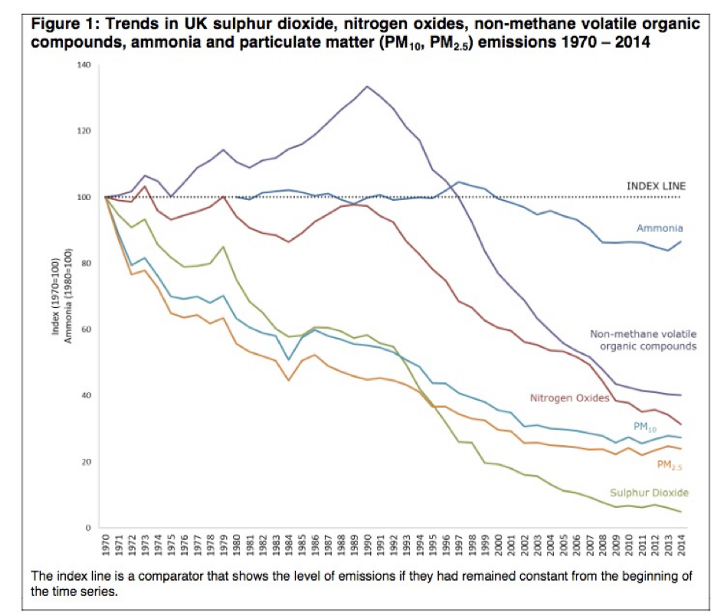A recent report by the Lancet Commision on Pollution and Health led to some scary headlines in the news:
Global pollution kills 9m a year and threatens 'survival of human societies'
That last headline doesn't appear to be a subeditor's exaggeration as one expert commenting on the report report is quoted as saying:
Air pollution is reaching crisis point worldwide, and the UK is fairing worse than many countries in Western Europe and the US,” said Dr Penny Woods, chief executive of the British Lung Foundation
and one of the authors said:
We fear that with nine million deaths a year, we are pushing the envelope on the amount of pollution the Earth can carry.
The same author also argued that:
Landrigan said the scale of deaths from pollution had surprised the researchers and that two other “real shockers” stood out. First was how quickly modern pollution deaths were rising, while “traditional” pollution deaths – from contaminated water and wood cooking fires – were falling as development work bears fruit.
So the report appears to conclude that things are getting worse and this is true even in the developed world where "modern" sources of pollution are rising.
But there is some reason to express skepticism. David Spiegelhalter, commenting on an earlier report about air pollution in the UK, analysed the reliability of the estimated number of deaths in the UK (estimated at 40,000/yr from air pollution, which is consistent with the later numbers in the new report) and found that the error bars were very wide. In addition he reproduced the following chart:
and commented:
So, now we know where at least one of the popular media statistics on air pollution comes from — is it true that there is a ‘crisis’ in air pollution in the UK?
Fine particulates and nitrogen oxides have been falling steadily for decades, and are about a quarter of what they were in 1970.
So the ‘crisis’ in the UK is not because pollution is getting worse, but because there is more known about the potential harms, particularly from nitrogen oxides. But the UK is not representative of the rest of the world: many rapidly growing cities have experienced dramatically rising pollution levels.
So we have newspaper headlines and some experts claiming we are approaching a crisis and another expert claiming things are getting better but they look worse because our knowledge is getting better.
So the question arises: are we facing a growing crisis (especially in the developed world)? Or, since "crisis" is ill defined, are the major sources of pollution in developed world cities getting worse or better?

